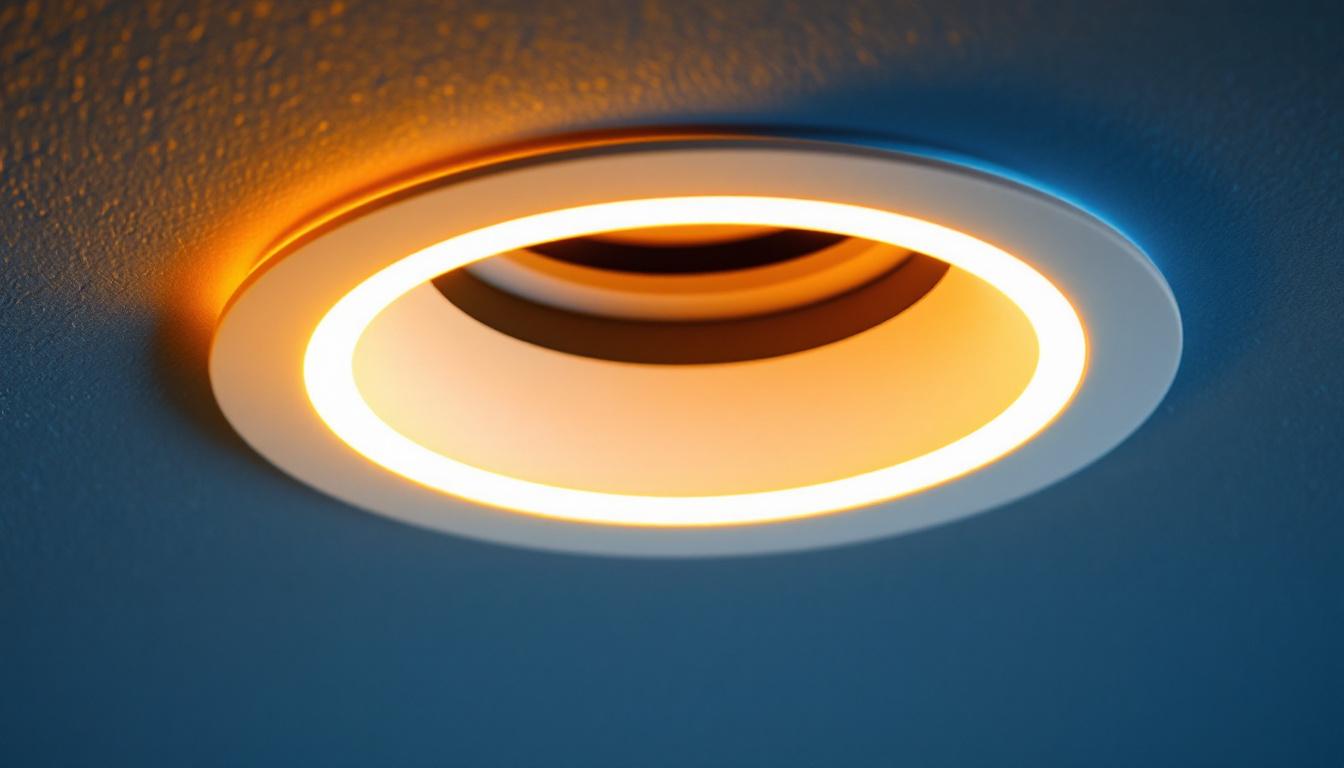
In recent years, the popularity of solar lamps has surged, driven by the need for sustainable energy solutions and the growing demand for outdoor lighting. These innovative devices harness solar energy to illuminate spaces, offering an eco-friendly alternative to traditional electric lighting. For lighting contractors, understanding the nuances of solar lamps is crucial, not only for compliance but also for delivering quality installations that meet client expectations.
This article delves into the essential aspects of solar lamps, focusing on compliance standards, installation best practices, and the considerations that lighting contractors must keep in mind when working with these products.
Solar lamps come in various designs and functionalities, catering to diverse outdoor settings such as gardens, pathways, and commercial spaces. Many models are equipped with advanced features like motion sensors, which enhance security by illuminating areas when movement is detected. Additionally, the aesthetic appeal of solar lamps has evolved significantly, with manufacturers offering sleek, modern designs that complement contemporary architecture while providing practical lighting solutions. This versatility not only meets the functional needs of clients but also allows contractors to recommend products that align with the overall design vision of a project.
Moreover, the technology behind solar lamps has advanced, leading to improved efficiency and longer-lasting performance. Modern solar panels are more effective at converting sunlight into energy, and the integration of LED technology ensures that the lamps provide bright, consistent illumination while consuming minimal power. As a result, contractors must stay informed about the latest innovations in solar lamp technology, as this knowledge will enable them to guide clients toward the most suitable options based on their specific requirements and environmental conditions. Understanding battery capacity and charging times is also essential, as these factors can significantly influence the performance and reliability of solar lamps in varying climates.
Compliance with industry standards is a fundamental aspect of any lighting project. Solar lamps are no exception. Various regulations and guidelines govern their design, manufacturing, and installation. Familiarity with these standards ensures that contractors can provide safe, reliable, and efficient lighting solutions.
Lighting contractors should be aware of several key compliance regulations when working with solar lamps. These may include local building codes, electrical codes, and environmental regulations. Each jurisdiction may have specific requirements regarding the installation and operation of solar-powered devices.
For instance, the National Electrical Code (NEC) outlines safety standards for electrical installations, which can extend to solar-powered systems. Additionally, contractors should consider any state or local incentives for renewable energy, which may influence the choice of solar products. Understanding these regulations not only helps in adhering to legal requirements but also promotes best practices in sustainability and energy efficiency, ultimately benefiting both the environment and the community.
Another critical aspect of compliance is the testing and certification of solar lamps. Products that meet specific performance and safety standards are often certified by recognized organizations. These certifications can include UL (Underwriters Laboratories) or IEC (International Electrotechnical Commission) marks, which indicate that the product has undergone rigorous testing.
Contractors should ensure that the solar lamps they choose for installation carry the appropriate certifications. This not only guarantees safety and reliability but also enhances the credibility of the contractor’s work. Furthermore, many manufacturers invest in continuous improvement and innovation, leading to the development of more efficient solar technologies. By selecting certified products, contractors can also take advantage of advancements in solar technology, such as improved battery storage and energy conversion rates, which can significantly enhance the performance and longevity of solar lighting solutions.
Moreover, compliance with testing standards often involves a comprehensive evaluation of the product’s durability and environmental impact. This includes assessments for resistance to weather conditions, UV exposure, and overall lifespan. Such rigorous testing ensures that the solar lamps not only perform effectively but also contribute to a reduction in carbon footprint, aligning with global efforts to promote renewable energy sources. As the demand for sustainable solutions grows, staying informed about compliance standards and certifications will be essential for contractors looking to remain competitive in the evolving market of solar lighting.
Proper installation is vital for maximizing the performance of solar lamps. Unlike traditional lighting systems, solar lamps rely on sunlight for energy, making their placement and installation critical. Here are some best practices for lighting contractors to consider.
Before installation, a thorough site assessment is essential. Contractors should evaluate the location for adequate sunlight exposure, as this directly affects the solar lamp’s efficiency. Factors such as nearby trees, buildings, and other obstructions can cast shadows, reducing the amount of sunlight the solar panels receive.
Additionally, contractors should consider the intended use of the lighting. Whether it’s for security, ambiance, or functional lighting, the placement of solar lamps should align with the client’s requirements while ensuring optimal solar exposure.
Once the site assessment is complete, the next step is to focus on proper mounting techniques. Solar lamps should be installed at the recommended height and angle to maximize solar exposure. Most manufacturers provide guidelines on the optimal installation parameters, which should be adhered to closely.
Furthermore, securing the lamps in a stable manner is crucial to withstand environmental factors such as wind and rain. Using appropriate mounting hardware and ensuring that the lamps are firmly anchored will help prevent damage and ensure longevity.
With an array of solar lamps available on the market, selecting the right product can be daunting for contractors. Several factors should be considered to ensure the chosen lamp meets the project’s needs.
Solar lamps come in various types, including pathway lights, flood lights, and decorative lanterns. Each type serves a different purpose and has unique features. For instance, pathway lights are designed to illuminate walkways, while flood lights provide broader illumination for larger areas.
Contractors should assess the specific requirements of the project and recommend the appropriate type of solar lamp. Understanding the differences in light output, battery capacity, and design will help in making informed decisions.
The quality of the battery and solar panel is a critical component of solar lamps. High-quality solar panels will efficiently convert sunlight into energy, while durable batteries will store that energy for use during the night. Contractors should look for products that feature lithium-ion batteries, as they typically offer better performance and longevity compared to traditional lead-acid batteries.
Moreover, the wattage of the solar panel and the capacity of the battery should be matched to ensure optimal performance. A solar lamp with insufficient battery capacity may not provide adequate lighting during cloudy days or extended periods of low sunlight.
To ensure the longevity and efficiency of solar lamps, regular maintenance is essential. Lighting contractors should educate clients on the importance of maintaining their solar lighting systems.
Routine maintenance for solar lamps includes cleaning the solar panels to remove dust and debris that can hinder performance. Contractors should recommend that clients check the lamps periodically, especially after severe weather events, to ensure they are functioning correctly.
Additionally, clients should be advised to replace batteries as needed, as older batteries may not hold a charge effectively. Providing a maintenance schedule can help clients keep their solar lamps in optimal condition.
Even with proper maintenance, issues may arise with solar lamps. Common problems include insufficient lighting, flickering lights, or complete failure to illuminate. Contractors should be prepared to troubleshoot these issues.
For instance, if a solar lamp is not providing enough light, it may be due to a dirty solar panel or a failing battery. In such cases, cleaning the panel or replacing the battery may resolve the issue. Educating clients on these troubleshooting steps can enhance their satisfaction with the solar lighting system.
Educating clients about solar lamps is an integral part of the installation process. Lighting contractors should take the time to explain the benefits and limitations of solar-powered lighting systems.
One of the primary benefits of solar lighting is its sustainability. Solar lamps reduce reliance on fossil fuels, contributing to a greener environment. Additionally, they can lead to significant savings on electricity bills, making them an attractive option for homeowners and businesses alike.
Moreover, solar lamps are often easier to install than traditional lighting systems, as they do not require extensive wiring or electrical work. This can result in lower installation costs and quicker project completion times.
While solar lamps offer numerous advantages, it is also essential to address their limitations. For example, solar lighting may not provide the same intensity of light as traditional electric fixtures, particularly in areas with limited sunlight. Contractors should set realistic expectations with clients regarding the performance of solar lamps.
Additionally, the effectiveness of solar lamps can vary based on geographic location and seasonal changes. Educating clients about these factors will help them make informed decisions and appreciate the benefits of their solar lighting systems.
As the demand for sustainable lighting solutions continues to grow, solar lamps present a viable option for lighting contractors. Understanding compliance standards, installation best practices, and the nuances of solar technology is essential for delivering quality service and meeting client expectations.
By choosing the right products, providing thorough education, and maintaining open communication with clients, contractors can successfully navigate the solar lighting landscape. Embracing this innovative technology not only enhances project offerings but also contributes to a more sustainable future.
Ultimately, the integration of solar lamps into lighting projects represents a step towards a greener, more energy-efficient world. Lighting contractors who stay informed and adapt to these changes will be well-positioned to thrive in an evolving industry.
Ready to elevate your lighting projects with the best solar lamps on the market? Look no further than LumenWholesale, where we provide lighting contractors with superior, spec-grade lighting solutions at unbeatable wholesale prices. Our commitment to quality and affordability ensures that you can meet and exceed your clients’ expectations without breaking the bank. Plus, with free shipping on bulk orders, you can stock up on high-performance lighting without worrying about hidden fees. Don’t compromise on quality or cost—choose LumenWholesale for Wholesale Lighting at the Best Value and light up your projects with confidence.

Discover why every lighting contractor should stay updated on the 6 Inch Recessed Light Trim Ring.

Discover expert tips for lighting contractors on overcoming challenges with fluorescent T12 bulbs.

Discover effective strategies to train your team in installing pot lights for suspended ceilings.

Explore the pros and cons of kitchen fluorescent light fixtures versus modern alternatives in this insightful guide.